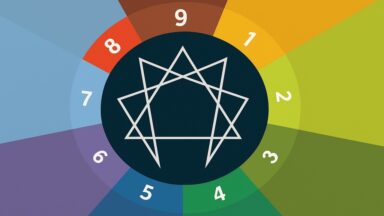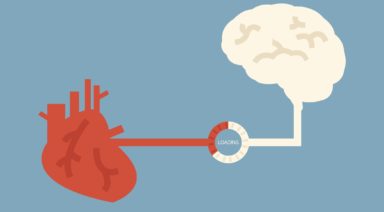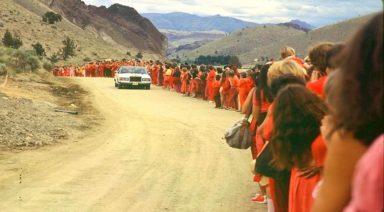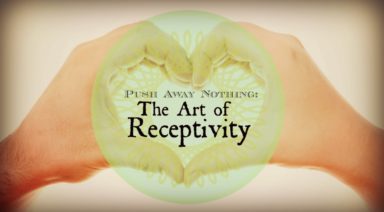Our Brains Don’t Slow With Age As Much As We Think

Our brains don’t slow down until much older than previously thought. Plus, there’s a useful method to train your brain to stay focused no matter what is going on around you.
Over the past few decades, studies have shown the speed at which the human brain can make simple decisions peaks in our twenties, with a rapid decline in mental speed as we get older.
But a new study out of Heidelberg University in Germany shows that our brain speed doesn’t slow down until our 60s.
This new study included more than 1 million participants and as the author of the study Dr. Mischa Von Krause, of Heidelberg University wrote, “Our results show that average levels in mental speed in contexts demanding fast and forced decisions do not decline until relatively late in the lifespan.”
It is true that the average time to give a correct answer peaks at about 20 years old. But the authors of this new study say the brains of older people are still fast, it’s their life experience that makes them more cautious when responding to a question. Put another way, a 20-year-old will confidently sacrifice accuracy for speed. But as the participants grew older, they made fewer mistakes until they hit age 60.
“It looks as though, in the course of our life, we don’t need to fear any substantial losses of mental speed – particularly not in the course of a typical working life,” Von Krause added.
Meanwhile, no matter what your age, in this modern era we face a constant barrage of distractions. So many that neuroscientist Amishi Jha argues that we miss about half our lives due to distractions. But in her recent book “Peak Mind: Find Your Focus,” she says you can retrain your brain.
Jha argues, first we should stop multitasking, telling Inc. Magazine you should think of your focus like a flashlight — it can’t shine in two places at the same time. Instead, engage in monotasking.
Secondly, take brain breaks throughout the day, using the “STOP” method:
S: stop what you are doing;
T: take a breath;
O: observe what is happening around you;
P: proceed
And finally, practice mindfulness. Take 12 minutes per day to focus on your breath, notice when your mind has wandered, redirect your attention back to your breath, and repeat. The goal isn’t to have no distractions, that’s impossible, but to notice when you are distracted and get back on track. Through this easy practice, Jha says you can retrain your brain to focus and get back the half of your life that is slipping away.
What the Enneagram Is and How to Identify Your Dominant Enneatype
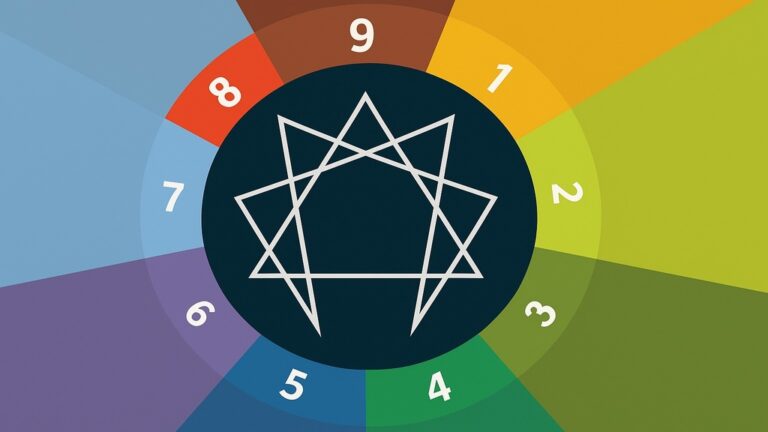
The Enneagram is a tool for self-knowledge that describes nine personality types, each with a particular way of thinking, feeling, and relating to the world. Its purpose is to help us understand our deepest motivations and the unconscious patterns that shape our lives. In this article, we explore what the Enneagram is, how it works, and how you can discover your dominant Enneatype to better understand yourself and grow as a person.
Table of Contents
- What Is the Enneagram of Personality?
- What Are the Enneatypes and How Are They Classified?
- What Are Wings in the Enneagram and How Do They Influence Us?
- What Does the Enneagram Symbol Represent?
- How to Discover Your Dominant Enneatype
- Self-Knowledge Through the Enneagram
- The History and Origin of the Enneagram
What Is the Enneagram of Personality?
The Enneagram is a system of self-knowledge that organizes human personality into nine main behavioral patterns, known as Enneatypes. Each person tends to live from one of these nine styles, which form during childhood as a response to an emotional wound. From there, we develop a personality that attempts to compensate for that pain, repeating beliefs, attitudes, and reactions we rarely question.
The word “Enneagram” comes from Greek and means “nine lines,” referring to the symbol that represents it. This symbol shows how the nine types relate to each other and helps us understand the changes we experience when we are emotionally balanced or unbalanced. The Enneagram is not a personality test, but rather a map that explains our automatic reactions and the psychological roots behind them.
The most valuable aspect of the Enneagram is that it not only reveals our defense mechanisms but also our potential for transformation. By identifying our dominant Enneatype, we can understand what limits us, what drives us, and what we need to evolve. For this reason, this tool is increasingly used in personal, therapeutic, educational, and professional development processes.
What Are the Enneatypes and How Are They Classified?
The Enneatypes are the nine personality types described by the Enneagram. Each one emerges from an emotional wound that shapes how we see the world and relate to others. These psychological structures are not rigid labels, but rather defense mechanisms developed in childhood to feel safe, loved, or valued. Knowing our dominant Enneatype allows us to understand what deeply motivates us, what our core fears are, and which patterns we tend to repeat unconsciously. Below, we describe each of the 9 Enneatypes in the Enneagram.
- Enneatype 1 (The Perfectionist): Their core wound is the belief that they are not good enough. To compensate, they constantly strive to do things “right,” following strict rules and high standards. They are usually responsible, ethical, and committed, but can also be rigid, critical, and prone to frustration when things don’t go as expected.
- Enneatype 2 (The Helper): They believe they must earn love by serving others. They devote themselves to caring, supporting, and being available, hoping for affection in return. While generous and empathetic, they can fall into emotional dependency and manipulative behaviors when they don’t feel appreciated.
- Enneatype 3 (The Achiever): They fear they are not worthy unless they prove their success or accomplishments. Their self-esteem is tied to performance and how others perceive them. Often efficient, ambitious, and charismatic, they may lose authenticity by adapting to expectations and avoiding vulnerability.
- Enneatype 4 (The Individualist): Their wound is the feeling of not being enough just as they are. They seek to stand out by being unique, special, and different. They experience emotions intensely and often feel misunderstood, which can lead to melancholy, envy, and disconnection from the present.
- Enneatype 5 (The Observer): Their main fear is not being able to cope with emotional demands. To protect themselves, they retreat into their minds, knowledge, and isolation. Analytical, independent, and intellectual, they may also be distant and disconnected from emotions and human contact.
- Enneatype 6 (The Loyalist): Their wound is rooted in mistrust of themselves and the world around them. They live in a state of alertness, anticipating danger and seeking certainty. Loyal, responsible, and cooperative, they can also be anxious, indecisive, and prone to relying on authority figures for guidance.
- Enneatype 7 (The Enthusiast): They avoid pain and discomfort by constantly seeking positive stimulation. They fill their schedules with plans, activities, and distractions to avoid confronting inner emptiness. Cheerful, versatile, and optimistic, they can also be inconsistent, superficial, and escapist.
- Enneatype 8 (The Challenger): They fear being hurt or controlled by others, so they adopt a stance of strength and dominance. They protect themselves by showing authority, confidence, and determination. While they can be leaders, protectors, and just, they may also come across as authoritarian, aggressive, and resistant to vulnerability.
- Enneatype 9 (The Peacemaker): Their wound lies in the fear of conflict and rejection from others. They tend to minimize themselves, avoid confrontations, and adapt to avoid discomfort. Calm, kind, and conciliatory, they may also be passive, disconnected from their desires, and struggle with decision-making.
What Are Wings in the Enneagram and How Do They Influence Us?
Within the Enneagram, each Enneatype is connected to the two neighboring types on the circle. These are known as “wings.” For example, someone whose dominant Enneatype is 5 may have a wing 4 or a wing 6. These wings don’t change the core type, but they do nuance our personality by adding secondary characteristics that broaden or balance our traits.
The influence of wings can be very strong or barely noticeable, depending on each person’s level of personal development. Some people clearly identify with one of the two wings, while others display traits from both. Wings function as extensions of the main type and often bring in abilities or resources that help compensate for certain limitations of the dominant Enneatype.
Understanding our wings not only deepens self-awareness, but also helps us better understand our inner contradictions. Through them, we can observe how our personality adapts, how we blend different traits, and how we expand our ways of responding to situations. Identifying the role of our wings is a key step toward working on ourselves with more consciousness and flexibility.
What Does the Enneagram Symbol Represent?
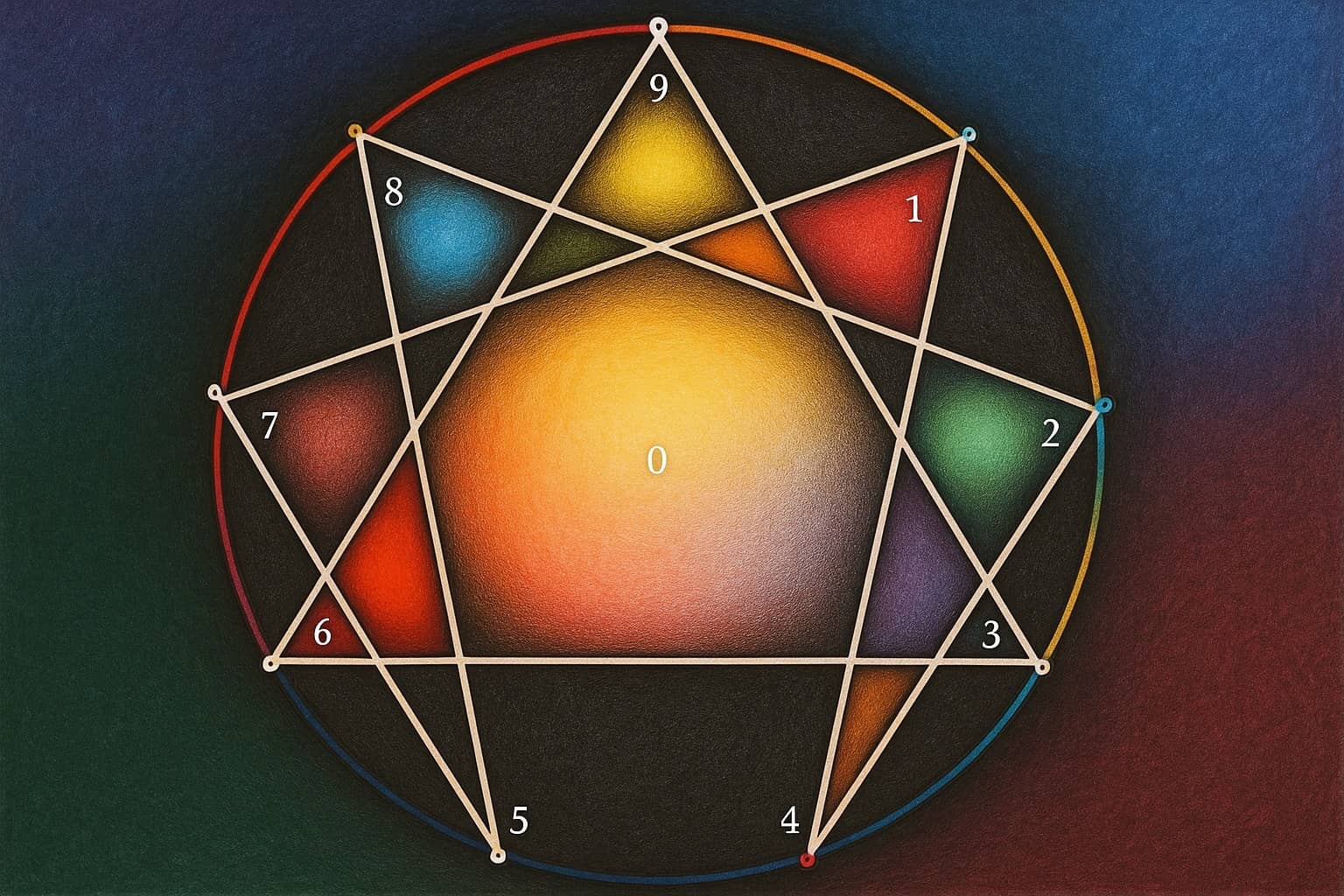
The Enneagram symbol is a geometric figure made up of a circle, an equilateral triangle, and a six-pointed irregular line. At first glance, it may seem complex, but each part has a deep meaning that helps us understand how this system works. The nine points around the circle represent the nine Enneatypes, and their placement is not random—they reflect a logical order related to energy and transformation.
The triangle connects points 3, 6, and 9, forming what is known as the “inner triad.” This shape represents three fundamental forces in the human being: action, emotion, and thought. The six-pointed figure (connecting points 1-4-2-8-5-7) illustrates the internal movement between types, showing how we shift depending on our level of balance or stress. This dynamic pattern is key to understanding growth or stagnation within each personality.
Beyond its shape, this diagram shows that we are in constant transformation as human beings. Rather than labeling us, the symbol invites us to see that we are always evolving—either growing or getting stuck. Visualizing how the Enneatypes relate to each other allows us to better understand our inner transitions and the possible paths for conscious evolution.
How to Discover Your Dominant Enneatype
Discovering your dominant Enneatype is not about taking a simple quiz, but about observing with honesty your most frequent emotional, mental, and behavioral patterns. While questionnaires can help point you in the right direction, true understanding comes when you recognize yourself in the description of a type—especially in its core emotional wound. Identifying the type that reflects your deepest motivations and defense mechanisms is a personal process that requires reflection and sincerity.
A good starting point is to carefully read through the descriptions of the nine Enneatypes, paying attention to what makes you uncomfortable or resonates with you intensely. It’s not just about identifying external behaviors, but about detecting the inner need that drives your actions. Are you seeking approval, control, security, freedom? Observing how you react to conflict, failure, or criticism can offer valuable clues about your primary type.
It can also be helpful to complement this process with books, courses, or professional guidance. Therapists and coaches trained in the Enneagram can support your self-discovery in a more structured way. As you gain a clearer understanding of your type, you can begin working on your blind spots, reconnect with your most authentic self, and move toward a more conscious and liberated version of who you are.
Self-Knowledge Through the Enneagram
The Enneagram is not a system for labeling people, but rather a tool for understanding how we disconnect from our essence and how we can return to it. It helps us clearly see the unconscious patterns we’ve repeated for years—often the source of suffering, conflict, or frustration. By identifying our Enneatype, we gain the opportunity to stop acting on autopilot and begin making choices from a more conscious place.
The self-knowledge process that the Enneagram proposes is neither immediate nor linear. It involves peeling back layers of self-deception, acknowledging emotional wounds, and observing our defensive behaviors with compassion. It also invites us to reconnect with our essential virtues—qualities that already live within us, but which we’ve often forgotten or suppressed out of fear. This journey is not about perfection, but about authenticity and balance.
Knowing yourself through the Enneagram involves a commitment to personal growth and greater emotional responsibility. As we understand ourselves better, we also learn to understand others. This model offers a shared language to speak about the human experience—with all its light and shadow—and reminds us that beyond personality types, we all share the same longing: to live with more awareness, freedom, and meaning.
The History and Origin of the Enneagram
The origin of the Enneagram is complex, combining philosophical, spiritual, and psychological influences. While its symbol has ancient roots tracing back to Middle Eastern traditions and Sufism, its modern application to the study of personality began in the 20th century. It was the Bolivian mystic Óscar Ichazo who first structured the nine character types into a coherent system, integrating knowledge from various traditions and philosophical schools.
Later, Chilean psychiatrist Claudio Naranjo developed the model from a therapeutic perspective, incorporating concepts from Western psychology. Through his clinical experience, he outlined the traits and defense mechanisms of each type, allowing it to be applied in educational and psychological settings. His contribution was key to transforming the Enneagram into a practical tool for self-discovery. In recent decades, its use has expanded and gained popularity around the world.


